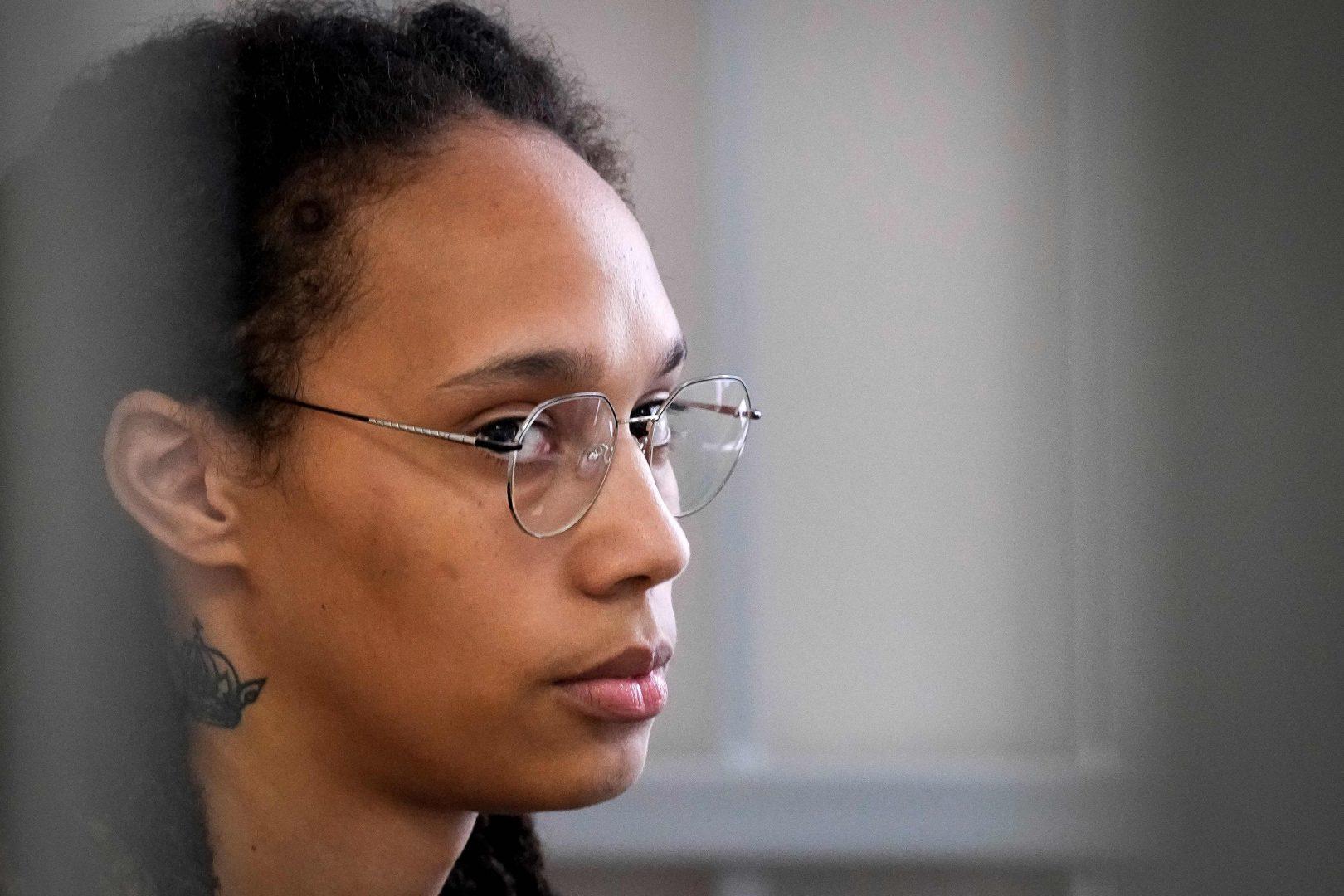Imagine for a moment a world in which a famous basketball player is arrested in Russia for something as minor as hashish oil. Imagine the player is someone like Lebron James, Stephen Curry or Kevin Durant. Imagine the outrage, the backlash.
No need to imagine. Since February, WNBA star Brittney Griner has been detained in Russia for carrying vape cartridges containing hashish oil, a concentrated form of marijuana. Possession of marijuana is illegal in Russia.
The 6-foot-9 center for the Phoenix Mercury is one of the few — if not the only — household WNBA names thanks to Griner’s accolades. In her nine-year professional career, the 31-year-old has been a two-time Olympic gold medalist and a two-time WNBA Defensive Player of the Year, becoming the first in Mercury franchise history to win the award.
But many, even basketball fans, have hardly heard about what she’s been enduring over the last six months.
Griner’s lawyers said she pled guilty to drug charges in hopes of courts being more lenient, but she now faces up to 10 years imprisonment in a penal colony simply for having hashish oil on her, according to The New York Times.
Her best hope of coming home is now if the Biden administration makes a prisoner swap with a notorious Russian arms dealer known as the “Merchant of Death.”
Russia invaded Ukraine only a week after Griner was detained while in Russia to compete for the professional women’s basketball team UMMC Yekaterinburg. The tense situation has been reflected in her treatment.
Griner described her situation to a Russian courtroom in July, detailing the “exhausting 13-hour flight” after recovering from COVID-19 that ended in her in an interrogation room with little being translated for her, as reported by Ivan Nechepurenko and Carly Olson.
She said she was told to sign papers without an explanation of what they said and held for 16 hours without a lawyer, facing repercussions for what she recalled as a mistake made while packing in a hurry.
In a letter to President Biden she wrote “I’m terrified I might be here forever.”
NBA Commissioner Adam Silver has said the league and its teams are using their influence and connections to help Griner out of the public eye, but in an interview with The New York Times political scientist Ian Bremmer questioned that.
“Could the NBA have done more? Yes, they could have,” he said.
While several players have shown public displays of support for Griner, the NBA itself has kept quiet; in fact, all 30 NBA teams denied an interview with The New York Times regarding Griner, citing the potential that public response could influence Russia to increase their demands.
But imagine again that an NBA star like James or Curry was in the same situation. It’s hard to believe that the league would keep quiet about it.
What’s easier to believe is that Griner, detained in Russia for six months now for something that multiple basketball players have publicly discussed using, feels abandoned.
“[She’s] a woman and playing in a sport that has, in my estimation, not received the respect that it deserves,” Aronte Bennett, associate dean of diversity, equity and inclusion at the Villanova University School of Business, said in an interview with Forbes. “Couple that with her being queer and Black, and I think those three things combined make her unlikely to be the kind of media darling that we often flock to when there’s a call for help.”
The reason Griner was in Russia to begin with reflects the discrepancy in treatment between men and women’s basketball teams. The gender pay gap is so severe that The New York Times reported women players often play with international teams instead of resting during the off-season.
The New York Times reported that the maximum salary for WNBA players in 2022 is only $228,094, compared to the tens of millions paid out to top N.B.A. players.
“If it was LeBron, he’d be home, right?” Mercury coach Vanessa Nygaard told the media after a team loss in July. “It’s a statement about the value of women. It’s a statement about the value of a Black person. It’s a statement about the value of a gay person. All of those things. We know it, and so that’s what hurts a little more.”
Griner’s family has given permission to raise attention regarding her case after Cherelle Griner, Brittney’s wife of three years, has said that the initial strategy of staying quiet did not work, according to NPR.
“So I will not be quiet anymore … My wife is struggling, and we have to help her,” she said.
It’s time for the NBA to stop hiding behind their excuse that action could make things worse. Griner has already lost half a year to what the Biden administration has declared “wrongful detainment,” and she could lose 10 more.
Something needs to be done — something more than just Instagram posts from NBA stars, #FreeBG t-shirts at press conferences and petitions.
“We have a woman who represents everything that we’re supposed to stand for that’s sitting in a prison … She’s been there [for months]. Why do we have to sign a petition? Let’s pretend it’s Tom Brady. Would we have to sign a petition then?” said Chicago Sky coach James Wade, as reported by the Chicago Sun Times.
The NBA league, players and fans need to step up and make the noise necessary to raise awareness of Griner’s situation and call for her return. Griner is a queer, Black woman, and she is also one of the best basketball players there is. Silence and patience hasn’t worked. It’s time to fight for her justice.




